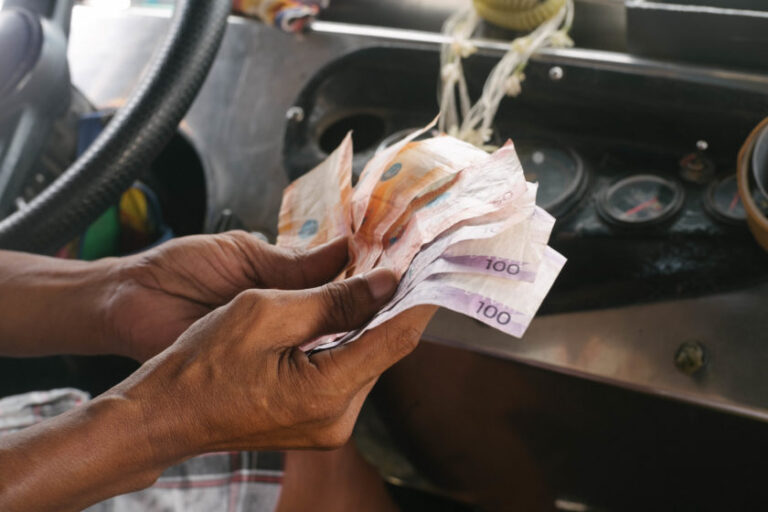
Despite these loans, government was only able to spend P98.3 billion for 17.5 million households as of June 27. According to independent think-tank Ibon Foundation, the subsidy amounts to just P53 per family or P12 per person per day for the past 106 days since the COVID-19 lockdown started.
By ANNE MARXZE D. UMIL
Bulatlat.com
MANILA – Bayan Muna Rep. Carlos Zarate lamented that while Duterte administration incurred huge loans during the pandemic, “assistance to the poor is inadequate and slow.”
Just recently, Philippines and Japan signed COVID-19 Crisis Response Emergency Support Loan amounting to P23.5 billion.
Another report revealed that the Philippines has a running total of loan worth of $7.76 billion from Asian Development Bank, World Bank, Asian Infrastructure Investment Bank, Japan International Cooperation Agency, Agence Francaise de Developpement and through issuance of bonds.
Despite these loans, government was only able to spend P98.3 billion for 17.5 million households as of June 27. According to independent think-tank Ibon Foundation, the subsidy amounts to just P53 per family or P12 per person per day for the past 106 days since the COVID-19 lockdown started.
The number of beneficiaries is small considering the impact of the lockdown to poor and middle-class families. According to the Department of Labor and Employment, 3,012 companies have closed down, leaving thousands of workers unemployed.
Ibon Foundation estimates that there are 14 million unemployed. The combined number of underemployed and unemployed is 20.4 million. Ibon described this as the worst crisis of unemployment in the country’s history.
In a virtual press conference on Saturday, July 4 organized by Ecumenical Voice for Human Rights and Peace in the Philippines (EcuVoice), Zarate also underscored the administration’s poor response to the health crisis. He said that cases of COVID-19 continue to increase despite having the longest lockdown in the world.
Zarate was responding to some member-States of the United Nations Human Rights Council which commended the Philippine government for its purportedly good record on the promotion and protection of social, cultural, economic rights including its response to the pandemic during the 44th regular session on June 30. It is also on this day that UN High Commissioner for Human Rights Michelle Bachelet also presented her comprehensive report on human rights situation in the Philippines.
“I think there is nothing to congratulate on that,” Zarate said.
Zarate added that the passage of the Anti-Terrorism Act of 2020 is in fact very telling that the government has wrong priorities in the time of the pandemic.
Daisy Arago, executive director of Center for Trade Union and Human Rights (CTUHR) also believes that “there is nothing commendable about the response of the government to the pandemic, especially for the working masses.”
Arago also said that instead of receiving aid from government, the poor are being arrested and detained, citing the case of the jeepney drivers, collectively called as Piston 6. Two of them contracted COVID-19 while in detention.
Meanwhile, Sonny Africa, executive director of Ibon Foundation, said the government can utilize enough funds which can be use dfor socially urgent expenses such as health and emergency relief but government has other priorities.
Africa said P989 billion is alloted for infrastructure for this year. “But since President Duterte has already promised the investors the profit for these projects, they are not using it even if some of these are not economically and financially liable,” he said.
Africa said P451 billion is appropriated for debt service and P582 billion for principal payments.
He added that the government also plans to lower the corporate income tax through the Corporate Recovery and Tax Incentives for Enterprises Act. There is at least P667 billion to be spent for the subsidy of private corporations, Africa said.
“This is unfortunate because, once again, the poor are left behind,” Africa said.
The increasing government debt, he said, means another tax to be shouldered by the poor and middle class.
The post ‘Deeper in debt but shallow in COVID-19 response, aid to the poor’ appeared first on Bulatlat.
